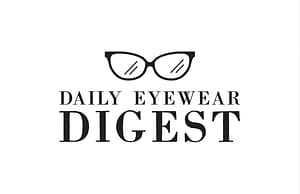1. Introduction to Eye Health in Cold Weather
Cold weather brings a unique set of challenges for eye health. With dropping temperatures and environmental changes, the winter months can lead to common eye issues such as dryness, irritation, and sensitivity. The combination of cold winds, lower humidity levels, and increased exposure to indoor heating can wreak havoc on your eyes if you’re not prepared.
Protecting your eyes in cold weather is crucial to maintaining clear vision and comfort. Whether you’re commuting to work or hitting the slopes for winter sports, it’s essential to know how to shield your eyes from the harsh elements of winter.
2. Why Cold Weather Affects Your Eyes
The winter season presents several environmental factors that can negatively impact your eyes. First, lower humidity levels during cold months result in less moisture in the air, which can cause your eyes to dry out more quickly than in warmer seasons. Wind and cold air also play significant roles in causing discomfort, often leading to irritation, redness, and tearing.
The cold weather tends to make you blink less frequently, which reduces the natural spread of tears across your eyes, exacerbating dryness. Moreover, while many think that UV protection is only a summer concern, harmful UV rays can still cause damage in winter, especially with the added reflection from snow.
3. Dry Eyes in Cold Weather
One of the most common issues people face in winter is dry eyes. Dry eyes occur when the tear film that protects your eyes evaporates too quickly due to cold, dry air or indoor heating systems.
- Causes: Cold air, low humidity, wind exposure, and prolonged exposure to heaters can cause tears to evaporate, leading to dry eyes.
- Symptoms: Dry eyes typically result in itching, burning, and a gritty feeling in the eyes. Some people may also experience blurry vision or excessive tearing.
- Prevention: To avoid dry eyes, use moisturizing eye drops regularly, wear protective eyewear outdoors, and limit exposure to harsh winds and dry indoor environments.
4. Protecting Your Eyes from Wind and Debris
Cold winds can blow debris, dust, and other particles into your eyes, increasing irritation. Wind also accelerates the evaporation of moisture from the surface of your eyes, leaving them feeling dry and scratchy.
- Protective Measures: Sunglasses or goggles can act as a barrier against wind and debris. Opt for wraparound glasses or goggles to provide maximum coverage and prevent the wind from entering your eyes.
- Scarves and Hats: Wearing a scarf around your face and a hat with a brim can help block the wind from directly hitting your eyes.
5. The Importance of Wearing Sunglasses in Winter
While many associate sunglasses with summer, they are just as important in winter. Harmful UV rays are still present in cold weather, and snow can reflect up to 80% of UV light, intensifying exposure.
- UV Protection: Always wear sunglasses with 100% UV protection to guard against these harmful rays. Prolonged exposure to UV rays can increase the risk of cataracts and other eye conditions.
- Polarized Lenses: Polarized sunglasses reduce glare from snow, making it easier and safer to see, especially when driving or spending time outdoors.
6. Hydration and Eye Health During Winter
Staying hydrated is just as important in winter as it is in summer. Dehydration can worsen symptoms of dry eyes, especially when cold weather reduces your body’s thirst response.
- Water Intake: Drink plenty of water throughout the day to keep your eyes and body hydrated. Aim for at least 8 glasses of water a day, and consider adding hydrating foods like cucumbers and oranges to your diet.
- Supplements: Omega-3 supplements are known to improve eye moisture and reduce dry eye symptoms. Including them in your winter diet can help combat the effects of cold weather on your eyes.
7. Heating Systems and Their Effect on Eye Health
Indoor heating, while essential for warmth, tends to dry out the air, contributing to eye discomfort. Forced air heating systems, in particular, can make indoor environments particularly dry, which accelerates the evaporation of moisture from your eyes.
- Humidifiers: To counteract dry indoor air, use a humidifier to add moisture back into the environment. This will help keep your eyes comfortable, especially if you spend long periods indoors.
- Positioning: Avoid sitting directly in front of heaters or fans, as the air blowing directly on your face can further dry out your eyes.
8. Eye Protection for Winter Sports
Winter sports, such as skiing and snowboarding, expose your eyes to extreme cold, high-speed winds, and intense sunlight reflecting off snow. Without proper protection, your eyes can become dry, irritated, and susceptible to UV damage.
- Goggles: Invest in high-quality ski goggles that offer full coverage and UV protection. Goggles designed for winter sports should also have anti-fogging technology to prevent condensation from obstructing your vision.
- Lens Options: Choose lenses that are suitable for the lighting conditions on the slopes. Lighter lenses for cloudy days and darker, polarized lenses for sunny conditions are ideal.
9. Eye Irritation from Cold Winds
Cold winds can exacerbate irritation, especially if you’re already prone to dry or sensitive eyes. Prolonged exposure to cold air can also lead to excessive tearing, which paradoxically results from the eyes’ natural defense mechanism against dryness.
- Protection Tips: To avoid irritation, wear glasses or goggles that fully cover your eyes when outside. In extreme cold or windy conditions, consider wearing a scarf or face mask to shield your eyes from direct wind exposure.
10. Humidifiers: A Must for Winter Eye Health
Using a humidifier in your home or workplace is a simple yet effective way to combat the dry air that often accompanies indoor heating during the winter months. By adding moisture back into the air, humidifiers help keep your eyes hydrated and prevent discomfort.
- Benefits: Maintaining a humidity level of 30-50% can significantly reduce eye dryness and irritation. Keep a humidifier in frequently used rooms, especially your bedroom, for better eye comfort overnight.
11. Contact Lenses in Cold Weather: Best Practices
If you wear contact lenses, cold weather can make it challenging to maintain comfort. Contacts can dry out more quickly due to cold air and low humidity, leading to irritation.
- Moisturizing Drops: Use rewetting drops designed for contact lenses to keep your eyes and lenses hydrated.
- Lens Choice: Consider switching to daily disposable lenses during the winter, as they can offer better moisture retention compared to extended-wear lenses.
12. Tips for Using Eye Drops in Winter
Using eye drops during winter can provide immediate relief from dryness and irritation. However, choosing the right eye drops is essential to maximize their effectiveness.
- Types of Eye Drops: Opt for preservative-free, lubricating eye drops to soothe your eyes without harsh chemicals. Avoid drops designed to “get the red out,” as they can cause more dryness in the long run.
- Application: Apply eye drops before heading outdoors, and carry a small bottle with you to use throughout the day as needed.
13. Nighttime Eye Care Routine for Winter
Establishing a nighttime eye care routine can help combat the drying effects of cold weather and indoor heating while you sleep.
- Moisturizing Eye Creams: Use a hydrating eye cream or gel before bed to lock in moisture and protect the delicate skin around your eyes.
- Humidifier Use: Run a humidifier in your bedroom overnight to maintain optimal air moisture levels and reduce the risk of dry eyes in the morning.
14. Nutrition for Winter Eye Health
Eating a balanced diet rich in vitamins and nutrients can help protect your eyes during winter.
- Omega-3 Fatty Acids: Foods rich in omega-3s, like salmon, flaxseeds, and walnuts, are known to improve eye moisture and reduce dry eye symptoms.
- Vitamins A and C: These vitamins help maintain good vision and eye health. Incorporate foods like carrots, spinach, and citrus fruits into your winter diet.
15. When to See an Eye Doctor
If your eyes continue to feel dry, irritated, or sensitive despite taking precautions, it may be time to see an eye doctor.
- Warning Signs: Persistent dryness, redness, blurry vision, or discomfort may indicate a more serious condition such as dry eye syndrome or a corneal abrasion.
- Professional Help: An eye doctor can recommend treatments such as prescription eye drops, punctal plugs, or other therapies to manage severe winter-related eye issues.
Frequently Asked Questions (FAQs)
1. Why do my eyes get dry in winter?
Cold weather and low humidity levels cause moisture in the eyes to evaporate more quickly, leading to dryness.
2. How can I prevent dry eyes during winter?
Use lubricating eye drops, wear protective eyewear outdoors, and keep indoor air moist with a humidifier.
3. Are sunglasses necessary in winter?
Yes, UV rays are still harmful in winter, and snow can reflect sunlight, increasing exposure to UV radiation.
4. What type of sunglasses should I wear in winter?
Choose sunglasses with 100% UV protection and polarized lenses to reduce glare from snow.
5. Can indoor heating dry out my eyes?
Yes, indoor heating reduces air moisture, which can dry out your eyes. Using a humidifier can help alleviate this.
6. When should I see an eye doctor for winter-related eye problems?
If you experience persistent dryness, redness, or vision problems despite using remedies, it’s best to consult an eye doctor.

